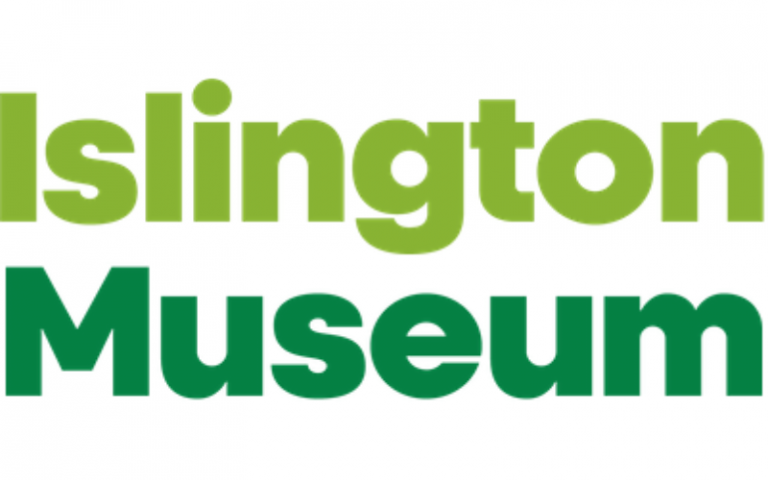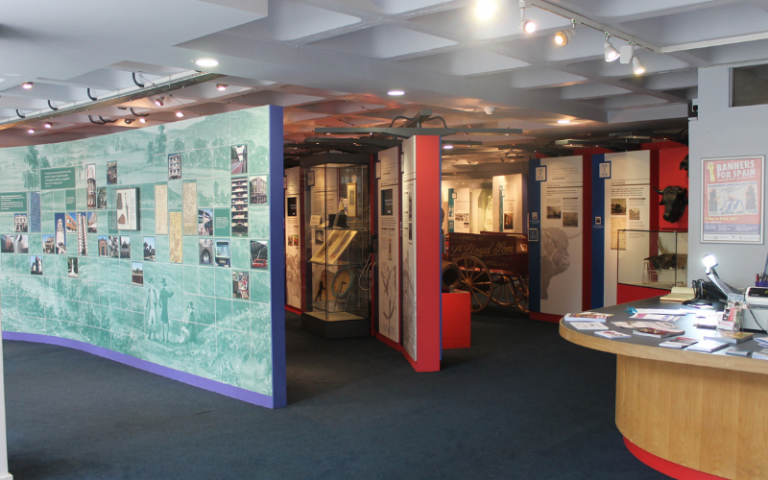Medieval and Renaissance Studies MA students chat to us about volunteering at Islington Museum
23 August 2022
Earlier this year, four UCL Medieval and Renaissance Studies (MARS) MA students researched various aspects of medieval and early modern Islington, in order to support a major new development project at Islington Museum.

MARS students Melody Wong, Katia Taylor, Peter De Baecke, and Ian Wong were all involved in the project. We chatted to them about their experiences.
Please could you tell us about the project you volunteered with at Islington Museum?
[Melody Wong] Islington Museum is currently undergoing a redevelopment project which features a complete redesign of the permanent gallery. As a one of the curatorial research volunteers, my duty was to assist the Heritage Assistants to conduct research on Islington life in a variety of time periods. I built portfolios about the Tudor period (1485 – 1603) on topics related to travelling, pubs, inns, industries and education. Afterwards, I also got hands-on experience requesting and examining the Museum’s objects from their archive collections. Finally, I also got a taste of curation through brainstorming how to best structure and interpret the portfolios and objects for the public. Working closely with the Heritage Learning Officer, one of my ideas was to construct an interactive storyline for the audience to simulate the life of an Islington traveller. The audience is invited to play through the traveller’s POV by picking the appropriate object (also displayed in the gallery) required in a specific setting. This then triggers the next stage of the storyline as the traveller progresses.
How did volunteering tie in with your studies on the Medieval and Renaissance Studies MA?
[Ian Wong] Volunteering with Islington Museum helped me see the possibilities for how the skills and knowledge we had acquired on the MARS programme could be applied in the real world – it’s very easy to get tunnel vision when you’re working hard on a postgraduate degree, but the opportunity to actually discuss research skills and medieval history within the context of Islington Museum’s mission added a dimensionality to my studies that I wouldn’t have had otherwise.

Image: Islington Museum Interior
What were your favourite things about volunteering at Islington Museum?
[Peter DeBaecke] Volunteering at Islington Museum was a wonderful opportunity to learn more about London in my short time here and to apply the skills and knowledge I've developed as a history student in practical ways. As someone who mainly studies the Tudor period, I was able to learn how the Reformation affected life in Islington and what it meant for people from a variety of backgrounds; I was trusted to do satisfactory work and to implement my feedback on the museum's planned renovation.
One of the reasons I volunteered was to leave having left my mark on London before returning to the United States, and I can see real progress towards that goal here. The museum staff and other volunteers were absolutely wonderful, approachable and knowledgeable about the Islington area - they care deeply about what they do. Sarah Guzman (who is also an alumna of the UCL MARS MA), the acting curator who I and the other students worked with, valued our opinions and expertise in our specialisations and approached us for feedback on future plans for the museum.
What were your main learnings from volunteering at Islington Museum?
[Katia Taylor] At the Islington Museum, I primarily researched the history of local institutions and brainstormed how to present my findings to visitors. My research focused on the medieval St. Mary’s Nunnery and Victorian Clerkenwell Prison, and their impacts on two different versions of Islington. One of my main takeaways from my research was connecting the information I found from primary and archaeological sources with larger medieval and Victorian trends. By drawing these connections, the idea was to make the information more relevant and important in the grand scheme of things for visitors, who can range from locals to first-time visitors in the district.
Since Islington Museum is in the process of renovating their entire exhibition, it also provided the unique opportunity for me to brainstorm with the curators on how to make their new renovated exhibition more interactive, inclusive, and exciting for visitors. I also learned a bit about the process of borrowing artifacts from other museums to expand Islington Museum’s collection to tell a more complete and nuanced history of the district. In all, I believe that my research and what I learned from the people I worked with will benefit me in the future as I continue to work in museums.
About Islington Museum:
The museum is a local-history focused council museum, whose priority is making Islington’s tangible and intangible heritage accessible, relevant, and informative to our local communities. A major impetus of the redevelopment project is making the museum more welcoming and interactive, and making the stories on display more diverse, more representative of Islington’s long history, and better able to engender a sense of pride and place. This redevelopment includes updating the exterior, changing the entire internal layout and display, and a complete redevelopment of the narrative both to include stories from Islington’s history before 1700 and to create a flexible community display space. We are currently looking at different areas where volunteers can help out with the redevelopment and future museum, and are happy to work with UCL’s students again in the future. Anyone interested in gaining some museum or research experience can email Sarah Guzman (Sarah.Guzman@islington.gov.uk).
 Close
Close

